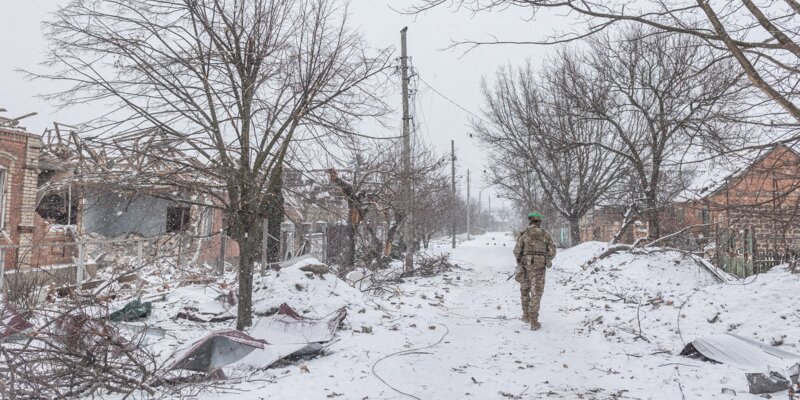With Shipments Stuck Overseas, Israel’s Life-Saving Biotech Industry Could Lose Millions
The cancellation of flights to and from Israel is threatening clinical trials of drugs and could cost millions of dollars, according to biotech executives. "We can take delays of a few days, but if the days turn into weeks – the damage will be massive.” The upshot: Delays in drug development and the threat of losing important overseas investors


The cancellation of flights to and from Israel is threatening clinical trials of drugs and could cost millions of dollars, according to biotech executives. "We can take delays of a few days, but if the days turn into weeks – the damage will be massive.” The upshot: Delays in drug development and the threat of losing important overseas investors

The cancellation of flights to and from Israel is threatening clinical trials of drugs and could cost millions of dollars, according to biotech executives. "We can take delays of a few days, but if the days turn into weeks – the damage will be massive.” The upshot: Delays in drug development and the threat of losing important overseas investors
BTG Laboratories. Photo: PR

Haim Rivlin
June 17, 2025
Summary


Listen to a Dynamic Summary of the Article
Created using NotebookLM AI tool
The halting of flights in and out of Israel is threatening not only the country’s tourism industry. According to two of the leading figures in the local biotechnology industry, they, too, are badly affected by the situation. For Prof. Yanay Ofran, founder and CEO of Biolojic Design, and Tal Levy, the General Manager of BTG, any interruption to the supply of sensitive materials could lead to losses of millions of dollars and delays to the development of life-saving drugs.
Ofran spoke to Shomrim from his company’s laboratories in Rehovot, but he freely admits that his mind is elsewhere – in Athens, to be exact. “We have a cargo of materials that is stuck in limbo in an airport in Greece. The materials are supposed to be used in experiments but there are no flights to get them to Israel. For the time being, they are being stored on dry ice and every few hours a local employee whose name I don’t even know is in charge of replenishing the ice. These materials are worth hundreds of thousands of dollars. If the employee doesn’t show up or if he puts the materials in the wrong place – the whole shipment is ruined.”
“If something goes wrong there and we are unable to use those materials, it will take many months before we can manufacture them again in China or one of the other countries which make them. The ramifications from delays like this can last up to six months, can cost millions of dollars and raise concerns that entire projects could fail,” he adds with concern.
Ofran is the founder of two promising biotech companies: in addition to Biolojic Design, which develops drugs used in cancer treatments, he was also behind Ukko, which has developed a safer treatment for people with peanut and gluten allergies. He is extremely concerned about the potential implications of disruptions to the Israeli supply chain and the ramifications for the biotech industry. “There isn’t a single country in the world – including China – that can drop out of the global supply chain and continue to operate normally. We can take delays of a few days, but if the days turn into weeks – the damage will be massive.”

“If something goes wrong there and we are unable to use those materials, it will take many months before we can manufacture them again in China or one of the other countries which make them."
‘There’s no such thing as ‘finding an alternative’ in pharmaceuticals’
Tal Levy, the General Manager of BTG, which is based in Be’er Tuvia, is also dealing with seemingly intractable logistical issues these days. The company – which develops and manufactures drugs for the treatment of hormonal imbalances, fertility issues, cancer and osteoarthritis – is hugely dependent on components that are sent from factories overseas. “In the world of pharmaceuticals, there’s no such thing as ‘finding an alternative.’ There is a specific factory which manufactures the specific product we need and that’s the only one that has been approved for use.”
An example of this is a shipment of critical equipment from the United States, which was supposed to leave America on Saturday night and still has not arrived in Israel. “If it does not get here within a week to 10 days, I will have no choice but to close a production line – and the upshot of that is that at some point we will not be able to manufacture the drug,” Levy explains. “You search high and low for a solution – maybe there’s something in the warehouse that is close to expiry date – but it’s not easy.”
.jpg)
BTG employs 450 people at its development and production facility in Be’er Tuvia and is considered a pioneer in the Israeli biotech industry. It was established in 1980 and was bought out by Swiss multinational biopharmaceutical company Ferring exactly 20 years ago. The ongoing war has created many challenges for the company: many of its employees have been called up for emergency reserve duty and several are residents of the Israeli communities in the Gaza envelope who were evacuated from their homes after October 7 and have been absent from work for a considerable time. And still, Levy says, “we have not had supply issues over the past two years.”
Despite all the challenges, Ofran is proud to say that his company continues to meet all of its targets. “People outside of Israel must see that the local industry is functioning. One way of looking at it and seeing if it is functioning is whether we meet all of the interim production targets that we promised. We survived the coronavirus pandemic and the judicial overhaul – which also came at a heavy price for us; we have survived almost two years of war and we never missed a deadline. But there’s also the element of appearance.”
“People overseas see images of a destroyed home in Rehovot or in Bat Yam and they think that the whole of Israel looks like that. If they know that our meetings with them will take place as planned and that afterwards we will fly back to Israel, they will say to themselves, ‘I might see some things on the news, but my partner in Israel is functioning normally and everything is working as it should’,” Ofran adds. “People show up for work – some of them bring their children, so we provide babysitters so that they can continue to work. But there’s a price to be paid when we cannot communicate with people overseas who need to see that we are functioning.”
Clinical trials are in limbo
Ofran’s company is about to start clinical trials for breakthrough drugs, and it’s currently in the midst of Phase 2 trials for AU-007 – the world’s first antibody designed entirely by computer. “This requires a large international effort. The clinical trial is in Phase 2 and the results are very promising. Most are manufactured abroad, but some of the components are made here in Israel.”
“No country on earth can develop everything alone. Even the biggest countries rely on a lot of foreign materials, processes and equipment. In the next few weeks, we were supposed to get 700 shipments and now there are questions about them,” he says. Ofran talks about another shipment that was supposed to be sent to Europe as part of an experiment that Ukko is due to launch in a few months from now. “There’s a company in Europe which saved us a slot in the production line that costs a huge amount of money. If the materials do not arrive on time, we’ll lose that slot. That can lead to a delay of six months.”
Are the Israeli authorities helping in any way? “There are some professional officials inside the ministries who understand the problem and want to help,” Ofran adds. “There is dialogue on the issue and I hope we can find solutions. The fact that our need to import materials coincides with the defense establishment’s needs could help us.” Ofran declined to elaborate and, a few hours later, called with an update: “We managed to get on an emergency flight. Our materials have landed in Israel.”
Levy also has experience of government efforts to help. The Transport Ministry and the Manufacturers Association of Israel have joined forces to allocate space on emergency flights returning to Israel. “We are trying to get space for one of our products that is stuck in the United States. There are other things that we are lacking, but this is the most critical.” According to Levy, companies are also looking into the possibility of maritime transport.
Is there concern that the parent company will ask itself why it needs the headache of working with Israel and will decide to relocate operations to its plant in Switzerland?
“Yes, but we also have total faith, built up over many years. They see what we have experienced here and they appreciate our capabilities.”
.jpg)
Tal Levy: "If it does not get here within a week to 10 days, I will have no choice but to close a production line – and the upshot of that is that at some point we will not be able to manufacture the drug."
‘Some things cannot be reproduced’
Beyond the delays and the disruptions, however, there is also a real threat to scientific assets. The missile damage to a laboratory at the Weizmann Institute of Science, which is located not far from Biolojic Design’s Rehovot facility, highlighted this. “In a biological lab that’s been damaged, like what happened at the Weizmann Institute, you’ll lose equipment. With enough money, you can replace that in about six months, maybe a bit longer. But in those labs, some things you can never get back – the developments themselves. For example, a professor might have developed a unique strain of bacteria that only existed in their lab.
According to Ofran, “if a colony of bacteria dies – that’s it. A strain that took maybe five to 10 years to develop disappears. We’re talking about the loss of scientific developments – labs belonging to professors where dozens of PhD students, post-docs and research fellows have worked, developing valuable assets that are stored in those labs. If there’s no backup, they’ll simply cease to exist.”
Are there backups?
“Not always. It’s not like backing up a file on your computer. You need to take a test tube, to split cells, to send them to cold storage in a different facility and to catalog everything. The cost, in terms of time, money and effort, is huge. We try to ensure that our most important materials are stored in at least two locations and, for some materials, we have a backup lab overseas.”
Despite everything, the BTG plant in Be’er Tuvia was designed to work during emergency situations. “We can operate independently for between four days and one week,” Levy says. Given the reality Israel is facing, it is clear that this is a complex and unstable way to run an industry that operates on a global scale.













